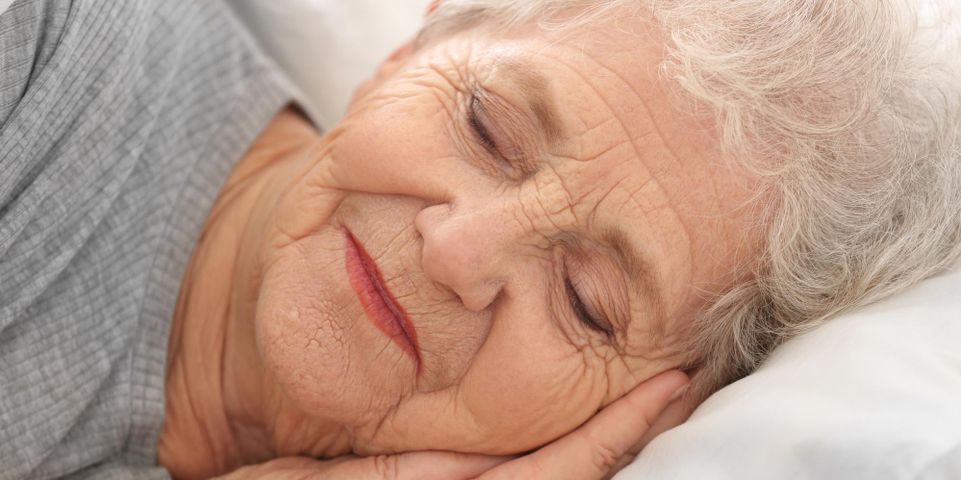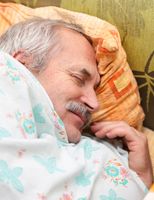Why Is Quality Sleep So Important for Seniors?

November is National Sleep Comfort Month, which means families and home health care providers everywhere are recommitting themselves to helping improve their loved ones’ sleep routine. Quality sleep is essential for seniors, who need enough rest to nourish their body and mind properly. Learn more below about the type of sleep that older adults require and how to know if they’re getting it.
The Main Types of Sleep
There are two basic types of sleep, non-rapid eye movement (NREM) and rapid-eye movement (REM). During NREM, people transition from light sleep to a period of quick, rhythmic brain activity. Heart rate and breathing eventually become steady, and the muscles relax. Once the brain is producing long delta waves, the deepest state of rest sets in.
REM sleep is also known as active sleep. The eyes move rapidly under the lids, the brain becomes busier, and dreams occur. At the same time, the body becomes even more supple and the muscles are immobile.
Seniors’ Time Spent in NREM and REM
 Research shows that seniors are prone to certain sleep problems, including trouble falling and staying asleep. Medications, health conditions, and sleep disorders all contribute to their challenges. Sleep studies indicate older adults spend less time than the younger population in the deeper phases of NREM sleep, also known as stages 3 and 4. Additional studies show the elderly spend less time than average in REM sleep, although the difference between the two populations is more subtle.
Research shows that seniors are prone to certain sleep problems, including trouble falling and staying asleep. Medications, health conditions, and sleep disorders all contribute to their challenges. Sleep studies indicate older adults spend less time than the younger population in the deeper phases of NREM sleep, also known as stages 3 and 4. Additional studies show the elderly spend less time than average in REM sleep, although the difference between the two populations is more subtle.
How Sleep Changes Affect Seniors
Physicians and home health care advocates agree – trouble sleeping can cause a host of mental and physical problems for seniors. These include depression, obesity, and cardiovascular disease. Sleep problems may also lead to issues with coordination and an increased risk of stroke and diabetes.
Improving Sleep in Seniors
Whether you are a family caregiver or partner with a home health care professional, ensure everyone is on the same page with promoting healthy sleep habits. Encourage loved ones to spend time outside, avoid caffeine at least a couple of hours before bed, and exercise regularly. It also helps to get to sleep at the same time each night.
Everyone deserves to live a safe, happy, and healthy life. Deer Valley Home Health Services, founded by senior home health care visionary Ada Joyce Taylor, strives to meet these needs for patients of all ages with quality assisted living services and nurse visits for seniors, disabled youths, and special needs adults. For information about their home health care, call them in Berkeley, MO, at (314) 355-3679, in St. Charles, MO, at (636) 493-6488, and in St. Louis, MO, at (314) 773-4433. Read their FAQ about private pay on their website and discover tips for family caregivers on their Twitter page.
About the Business
(2 reviews)
Have a question? Ask the experts!
Send your question

